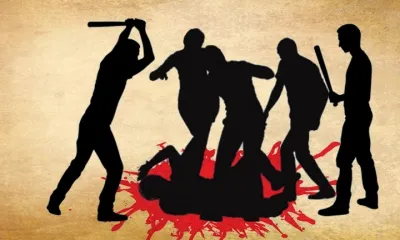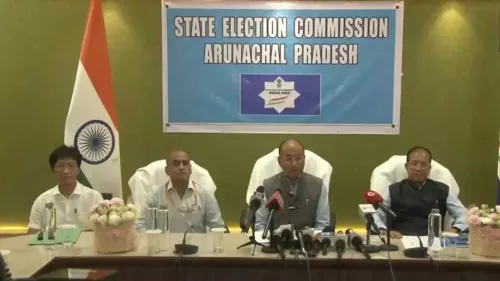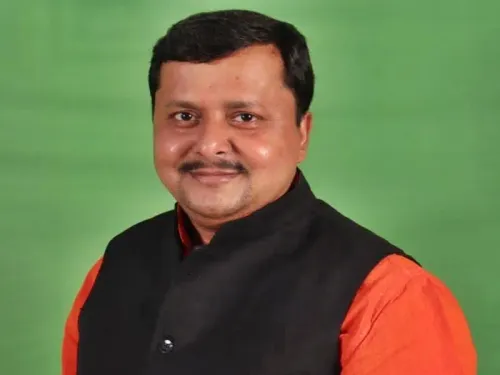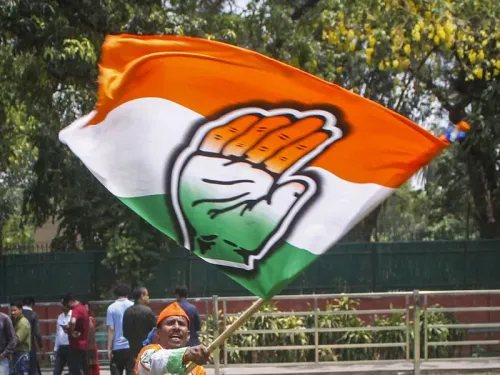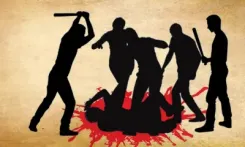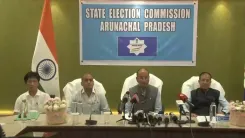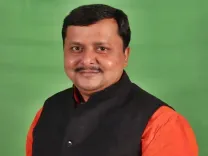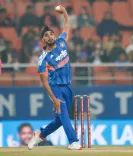FairPoint: The Political Fallout of the ‘Push’ Allegations May Impact Rahul Gandhi
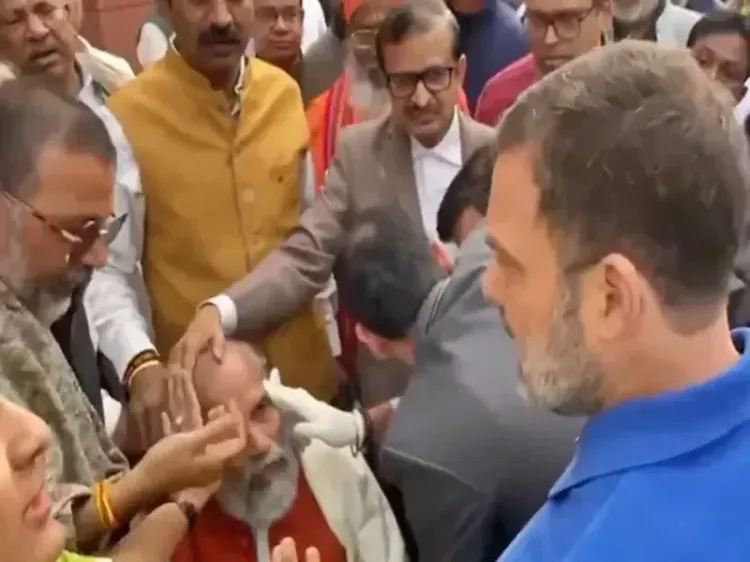
New Delhi, Dec 22 (NationPress) There exists a distinct divide between the possibilities of whether an incident occurred or not, which remains merely speculative until a judicial ruling is provided. Meanwhile, certain perceptions and narratives have already taken shape.
When the matter involves a figure such as Rahul Gandhi, there is an intense battle of narratives regarding "did not" versus "did".
The footage showcasing Rahul Gandhi swiftly departing from the wheelchair of an injured BJP MP, Pratap Sarangi, on the premises of Parliament on December 19, while claiming "he (Sarangi) pushed me," did not cast a positive light on the Congress leader. Dressed in a blue half-sleeve T-shirt, Gandhi could have approached the situation with more sensitivity towards the elderly man, who was bleeding from his left temple.
The incident is currently under investigation, and until the facts come to light, all assertions remain unproven.
For the constituents who voted for the MPs and observed the events unfold on news channels or social media, the images of injured individuals raised no doubts. The predicament for Rahul Gandhi has intensified, especially as a female MP lodged a complaint with the Rajya Sabha accusing him of inappropriate conduct by standing too close, causing her distress during the protest on December 19 in the Parliament area. In response to the accusations, the Congress leader stated he was attempting to enter through the Parliament entrance when BJP MPs allegedly obstructed and threatened him.
Both the Congress party and BJP are crafting their narratives. The two injured MPs are currently hospitalized, and the National Commission for Women (NCW) has taken notice of the female MP’s allegation. An FIR has been filed against Rahul Gandhi under multiple sections of the Bharatiya Nyaya Sanhita, 2023, in relation to the Parliament altercation. He is facing several charges which could lead to imprisonment for up to seven years. Among these sections, 117 and 125 are cognizable offences, allowing police to arrest without a warrant (from the court).
The outcome of this case is not merely speculative; rather, it reflects on the Gandhi scion’s aspirations to lead the country as Prime Minister. This incident also reveals the current political climate and the state of Parliament.
Citizens elect leaders to Parliament with the expectation that they will act in the public's best interest and drive the nation towards progress. However, these leaders often transform debates into chaotic confrontations. It is accurately stated that "the success, effectiveness and prestige of any institution relies on its orderly functioning and adherence to standards of discipline, dignity, and decorum in their operations."
The events in both Houses of Parliament — Lok Sabha and Rajya Sabha — have been inconsistent with this principle. They have experienced increased disorder and, now, violence, albeit not within the House itself but on the premises.
The entire winter session, which began on November 25 and was adjourned sine die on December 20, was tumultuous and concluded on a regrettable note. The Lok Sabha's productivity was approximately 54.5 percent, while the Rajya Sabha's was around 40 percent, according to the Ministry of Parliamentary Affairs.
A productivity rate this low would typically attract criticism in any workplace; however, no such repercussions are faced by MPs. As observed in this session, the political parties appeared more focused on preventing Parliament from functioning properly, and that objective was achieved.
This is not the first instance of subpar functioning, but it might be the first time that MPs engaged in physical confrontations, with the Leader of Opposition (LoP) being a principal figure in the allegations.
The nation has witnessed similar incidents in state Assemblies where MLAs have participated in physical disputes. One of the most memorable instances occurred on March 25, 1989, in the Tamil Nadu Assembly when Jayalalithaa, the then LoP, was attacked. Reports indicate she exited the Assembly with disheveled hair, a torn saree, and tears streaming down her face. Photographs from that time captured her distress.
The events of December 19 within the Parliament precincts may not bode well for Rahul Gandhi. Whether he pushed the MPs or offended a woman’s sentiments will ultimately be determined through legal examination, but his public image has undoubtedly suffered.
Once a leader who guided his party, Rahul Gandhi has accumulated more setbacks than successes. While his personal performances in successive Lok Sabha elections have been commendable, his party's standing has been steadily declining.
December 19 marks a moment in the history of Parliament where discipline, decorum, and dignity were compromised. Solutions must be sought, and that too in a timely manner.
When disruptions in legislatures become commonplace, it not only results in wastage of taxpayer money but also conveys a negative image of legislative bodies, which can erode public trust in these institutions. The lack of discipline and decorum in legislatures poses a significant threat to the health of our parliamentary democracy, as stated by Lok Sabha Speaker Om Birla in August.
The recent altercations, the visuals of wounded MPs, and the distress of a female leader serve as evidence that all is not well within the political elite, regardless of party affiliations, who occupy seats in Parliament. The Opposition, particularly Rahul Gandhi, requires sincere introspection, if only for the sake of the Constitution, which he often takes pride in championing.
(Deepika Bhan can be contacted at deepika.b@ians.in)


